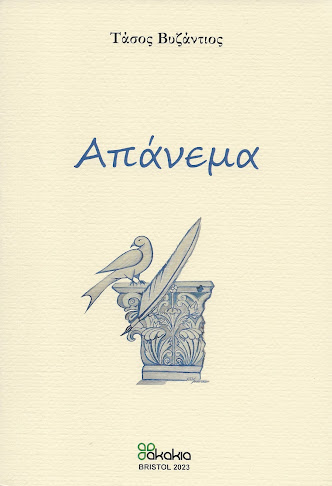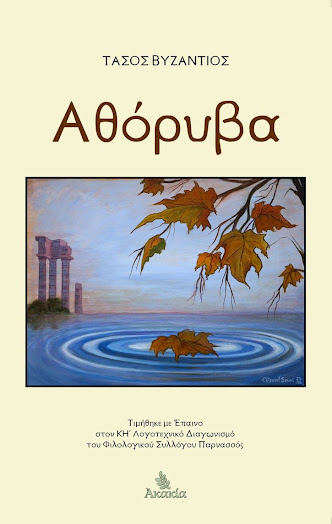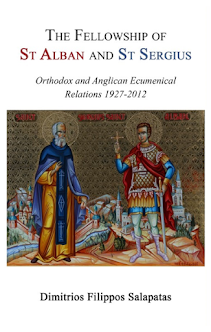Με πολλή χαρά παρουσιάζουμε εδώ σήμερα τη νέα Διδάκτορα, φίλη, συνεργάτιδα και Υποδιευθύντρια του Ελληνικού Κολεγίου Αγ. Παντελεήμονος ΒΔ Λονδίνου, Μαρία Χονδρογιάννη.
Η Δρ. Χονδρογιάννη κατέθεσε χθες στο Πανεπιστήμιο του Westminster (Λονδίνο) την ήδη εγκεκριμένη (από τις αρχές του φετινού καλοκαιριού) διδακτορική της διατριβή, με θέμα: «Τhe Pragmatics of the Modern Greek grammatical system». Tης ευχόμαστε θερμά συγχαρητήρια, καλή επιστημονική συνέχεια και να κρατάει ψηλά πάντοτε τη σημαία της αθάνατης ελληνικής μας γλώσσας.

Παρακάτω παρατίθεται μια σύντομη περίληψη της διατριβής της, έτσι όπως έχει διατυπωθεί από την ίδια τη νέα διδάκτορα:
This thesis is primarily concerned with the Pragmatics of the Modern Greek (MG) grammatical system. A secondary aim is the investigation of the relationship between morpho-syntax, phonology and pragmatics’ related features which form part of the grammar, in allowing a speaker’s intention to be formulated into a linguistic expression. The term grammatical mood is used in this work as the category which includes ‘all grammatical elements operating on a situation / proposition, that are not directly concerned with situating an event in the actual world, as conceived by the speaker’ (Hengeveld 2004). Moreover, the analysis undertaken follows the framework provided by Hengeveld et al. (2007) of a systematic hierarchical classification of propositional and behavioural basic illocutions.
Recent research has provided an extensive analysis of the syntax and semantics of the MG verb moods; this thesis focuses on the way illocution is codified in a speaker’s message, through the morphosyntactic and phonological choices the speaker has made. Based on morphosyntactic criteria, five MG grammatical moods are formally distinguished, namely the Indicative, the Subjunctive, the Imperative, the Prohibitive and the Hortative. Furthermore, the five prosodic contours available to a speaker when forming a linguistic expression are identified, which contribute to the specification of particular uses.
The main contribution of this thesis is a systematic representation of the basic illocutions of MG based on markers that have an illocutionary impact, such as the Verb Mood, the Negation, the Clitic Placement, the Intonation Patterns and any Additional Segmental Strategies used by MG speakers. In addition to Theoretical Linguistics and Pragmatics, the findings could benefit several other disciplines, including natural language acquisition, first and second language teaching as well as natural language interfaces, human-machine interaction, speech processing systems, and on-line language learning systems.
Η Δρ. Χονδρογιάννη κατέθεσε χθες στο Πανεπιστήμιο του Westminster (Λονδίνο) την ήδη εγκεκριμένη (από τις αρχές του φετινού καλοκαιριού) διδακτορική της διατριβή, με θέμα: «Τhe Pragmatics of the Modern Greek grammatical system». Tης ευχόμαστε θερμά συγχαρητήρια, καλή επιστημονική συνέχεια και να κρατάει ψηλά πάντοτε τη σημαία της αθάνατης ελληνικής μας γλώσσας.

Παρακάτω παρατίθεται μια σύντομη περίληψη της διατριβής της, έτσι όπως έχει διατυπωθεί από την ίδια τη νέα διδάκτορα:
This thesis is primarily concerned with the Pragmatics of the Modern Greek (MG) grammatical system. A secondary aim is the investigation of the relationship between morpho-syntax, phonology and pragmatics’ related features which form part of the grammar, in allowing a speaker’s intention to be formulated into a linguistic expression. The term grammatical mood is used in this work as the category which includes ‘all grammatical elements operating on a situation / proposition, that are not directly concerned with situating an event in the actual world, as conceived by the speaker’ (Hengeveld 2004). Moreover, the analysis undertaken follows the framework provided by Hengeveld et al. (2007) of a systematic hierarchical classification of propositional and behavioural basic illocutions.
Recent research has provided an extensive analysis of the syntax and semantics of the MG verb moods; this thesis focuses on the way illocution is codified in a speaker’s message, through the morphosyntactic and phonological choices the speaker has made. Based on morphosyntactic criteria, five MG grammatical moods are formally distinguished, namely the Indicative, the Subjunctive, the Imperative, the Prohibitive and the Hortative. Furthermore, the five prosodic contours available to a speaker when forming a linguistic expression are identified, which contribute to the specification of particular uses.
The main contribution of this thesis is a systematic representation of the basic illocutions of MG based on markers that have an illocutionary impact, such as the Verb Mood, the Negation, the Clitic Placement, the Intonation Patterns and any Additional Segmental Strategies used by MG speakers. In addition to Theoretical Linguistics and Pragmatics, the findings could benefit several other disciplines, including natural language acquisition, first and second language teaching as well as natural language interfaces, human-machine interaction, speech processing systems, and on-line language learning systems.









































No comments:
Post a Comment